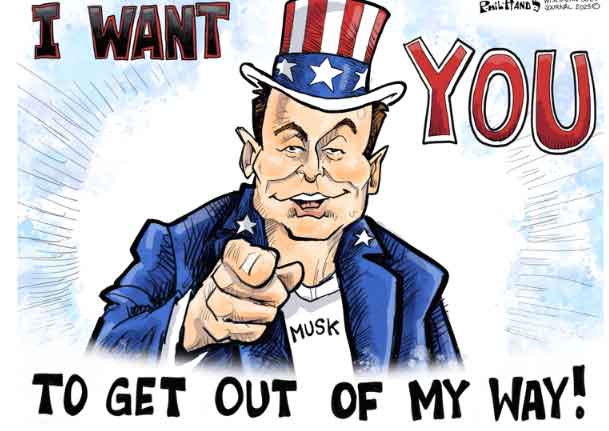
Even in our ultra-polarized era, the public and private sectors seem to have reached a consensus on the common scourge of our time: bureaucracy.
Bureaucracy is an easy scapegoat, a way to rally support and advance an agenda by evoking something that is universally reviled. Who doesn't hate waiting in line at the DMV, filling out seven pages of paperwork at the doctor's office or the headache that can come with getting an expense report approved? "It's kind of unifying," says
But bureaucracy isn't just inertia, disengagement and red tape. It's also order and stability. While bureaucracy has evolved into a pejorative term used to describe complicated and pointless administrative procedures, bureaucracy is, at its core, an administrative system and way of organizing.
It's the framework that provides the hierarchy and formalized rules that help an institution run. "The opposite of bureaucracy is not freedom and agility — it's chaos," says
Bureaucracy didn't always have such a bad rap. Before becoming a staple of office life, it emerged as an alternative to feudalism — a way to put people into jobs based on their technical merit and skill rather than at the king's pleasure. Even today, more bureaucratic institutions are likely to be fairer ones, in which competence holds a higher value than connections.
In corporate America, where bureaucracy has become synonymous with middle management, a trend called "unbossing" has taken hold. In 2023,
At pharmaceutical giant
This kind of flattening or "delayering" is supposed to push decision-making down to the workers on the ground. In practice, though, it can also be a euphemism for cost cutting. It also can end up consolidating control at the top, with CEOs reporting that flattening actually got them deeper into the weeds on daily decision making.
That's not to say unbossing can't work. But the companies that have done it successfully have had to implement more structure and process. When
A big risk of removing the structures that come with bureaucracy is the question of what will emerge in their stead. "It's really easy to break things and hard to build a high-functioning, high-performing organization in its place," Lee told me. Doing so requires thoughtful, intentional action and design, yet Lee says the conversation rarely gets to that point.
One reason companies keep defaulting to bureaucracy is because it works, for better or worse, as "both a weapon of domination and the primary tool for realizing many of humanity's most significant undertakings," Monteiro has written.
For a case in point, look no further than Dimon's attempts to rid
(COMMENT, BELOW)
Beth Kowitt is a Bloomberg Opinion columnist covering corporate America. She was previously a senior writer and editor at Fortune Magazine. Andrea Felsted is a Bloomberg Opinion columnist covering consumer goods and the retail industry. Previously, she was a reporter for the Financial Times.
Previously:
• Target's DEI flip-flop came at a price
• Get ready bosses --- today's protesters are tomorrow's workers
• AI may not only take your job, but fire you first


 Contact The Editor
Contact The Editor
 Articles By This Author
Articles By This Author